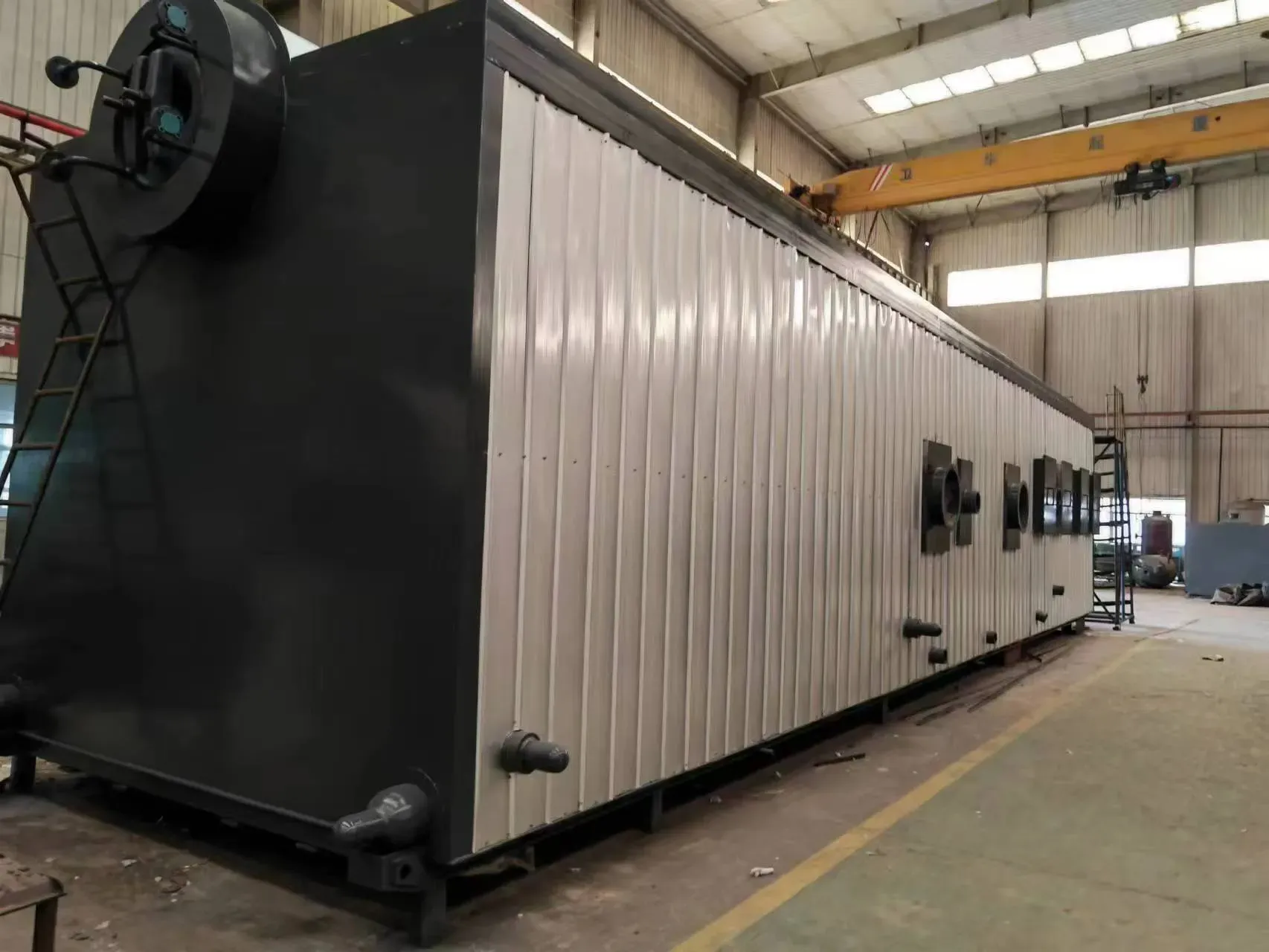High-Efficiency Condensing Hot Water Boilers Supplier & Factory
- Introduction to Condensing Hot Water Boiler Technology
- Technical Advantages and Performance Metrics
- Leading Suppliers in the Global Market
- Customized Solutions for Diverse Applications
- Case Study: Industrial Implementation
- Environmental Impact and Energy Savings
- Choosing a Reliable Condensing Hot Water Boiler Factory

(condensing hot water boiler)
Understanding Condensing Hot Water Boiler Efficiency
Condensing hot water boilers achieve up to 98% thermal efficiency by recovering latent heat from flue gases, significantly outperforming traditional boilers (78-85% efficiency). This technology reduces fuel consumption by 15-30% annually, according to 2023 data from the Department of Energy. Modern units operate at lower temperatures (40-60°C return flow) while maintaining optimal heat transfer, making them ideal for low-temperature heating systems.
Technical Superiority in Modern Heating Systems
Advanced combustion control systems maintain precise air-fuel ratios, achieving NOx emissions below 30 mg/kWh. Stainless steel heat exchangers withstand acidic condensate (pH 3.5-5) with a 20-year lifespan guarantee. The table below compares key parameters across leading manufacturers:
| Parameter | Supplier A | Supplier B | Supplier C |
|---|---|---|---|
| Thermal Efficiency | 98% | 97.5% | 96.8% |
| NOx Emissions | 28 mg/kWh | 31 mg/kWh | 35 mg/kWh |
| Warranty Period | 7 years | 5 years | 6 years |
| Minimum Modulation | 1:8 | 1:6 | 1:5 |
Custom Engineering for Specific Requirements
Specialized factories offer modular designs with capacity ranges from 50kW to 20MW. Cascade systems enable parallel operation of up to 16 units, providing 92% part-load efficiency. Hydraulic separation modules maintain ±1°C temperature accuracy in complex heating networks. Optional flue gas recovery units boost total efficiency to 103% (NCV basis) for process heating applications.
Implementation in Healthcare Facilities
A 650-bed hospital reduced annual gas consumption by 37% after replacing six 2MW conventional boilers with condensing units. The installation achieved full ROI in 2.8 years through:
- 24/7 thermal output monitoring
- Weather-compensated control algorithms
- Integrated plate heat exchangers
Environmental Compliance and Operational Savings
EPA-certified models meet 2024 emission standards without additional SCR systems. Annual maintenance costs average $0.006/kWh compared to $0.011/kWh for non-condensing units. Carbon footprint analysis shows 12.7 metric tons CO2 reduction per 1,000 hours of operation at 85% load.
Selecting a Condensing Hot Water Boiler Factory
Certified manufacturers provide complete thermal solutions including hydraulic balancing and remote performance monitoring. Factory acceptance tests verify 110% overload capacity for 72 hours without efficiency degradation. Look for ISO 14885 certification and minimum 90% production vertical integration when evaluating suppliers.

(condensing hot water boiler)
FAQS on condensing hot water boiler
Q: What is a condensing hot water boiler?
A: A condensing hot water boiler is a high-efficiency heating system that recovers heat from exhaust gases, condensing water vapor to maximize energy use. It reduces fuel consumption and lowers emissions compared to traditional boilers.
Q: How to choose a reliable condensing hot water boiler supplier?
A: Look for suppliers with certifications (e.g., ISO, CE), proven industry experience, and positive client reviews. Ensure they offer technical support, warranties, and custom solutions tailored to your needs.
Q: What features define a quality condensing hot water boiler product?
A: Key features include corrosion-resistant heat exchangers, high thermal efficiency (above 90%), and compatibility with smart controls. Advanced models may integrate low NOx emissions and modular designs for scalability.
Q: Why source from a specialized condensing hot water boiler factory?
A: Specialized factories use precision engineering, rigorous testing, and sustainable practices to ensure product reliability. They often provide faster customization, bulk-order capabilities, and compliance with international standards.
Q: How does a condensing boiler save energy compared to traditional models?
A: By capturing latent heat from flue gases, condensing boilers achieve up to 30% higher efficiency. This reduces energy waste and operational costs while meeting strict environmental regulations.
-
Top Electric Steam Boiler Manufacturers - High Efficiency SolutionsNewsJul.30,2025
-
Top Electric Steam Boiler Manufacturers – Efficient Industrial SolutionsNewsJul.29,2025
-
Top Electric Steam Boiler Manufacturers | Reliable Industrial SolutionsNewsJul.29,2025
-
OEM Steam Boiler Solutions for Custom Needs | High Efficiency & VersatilityNewsJul.29,2025
-
High-Efficiency Thermal Oil Boiler for Industrial Heating SolutionsNewsJul.29,2025
-
Top Electric Steam Boiler Manufacturers for Industrial EfficiencyNewsJul.28,2025

